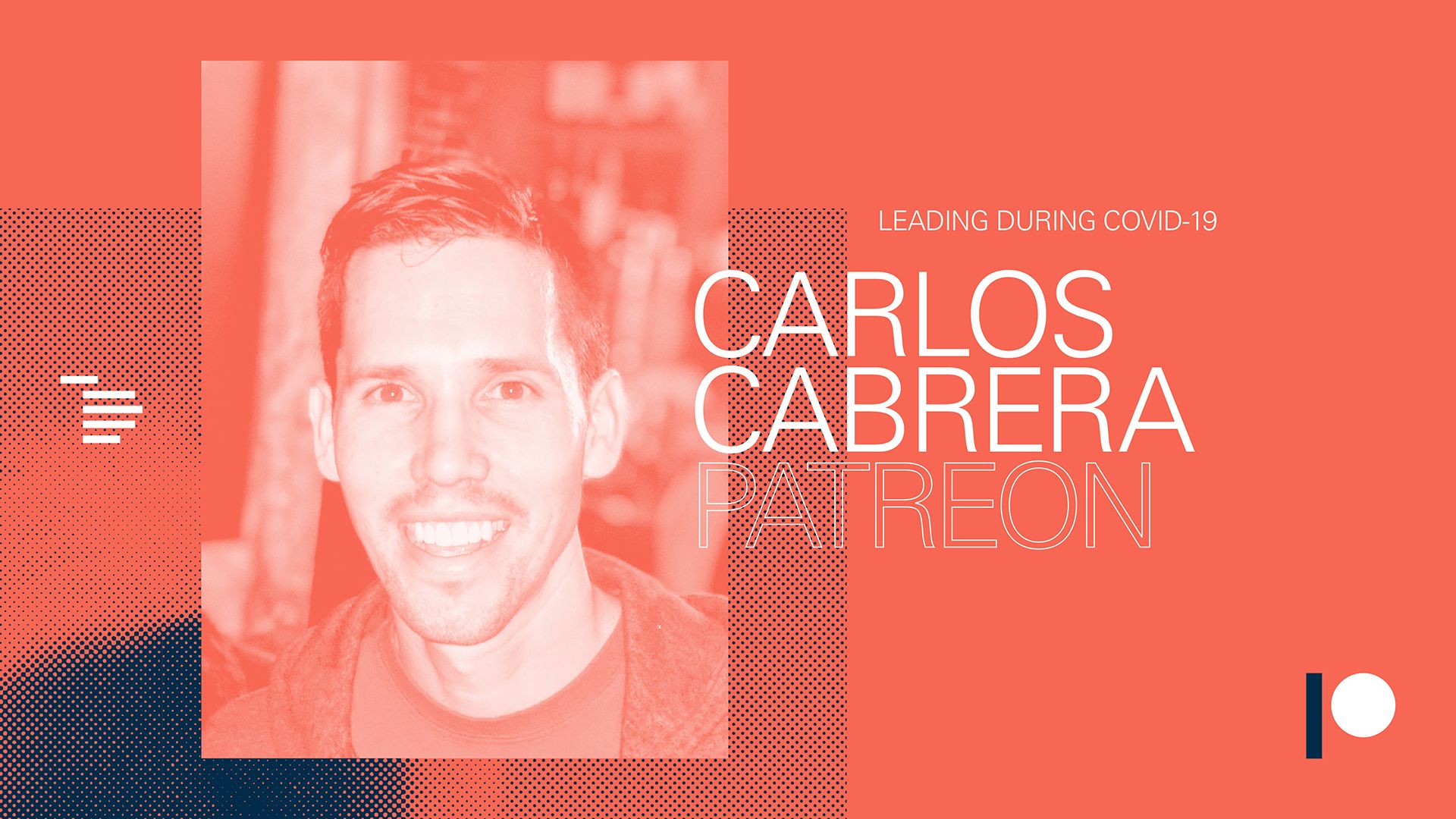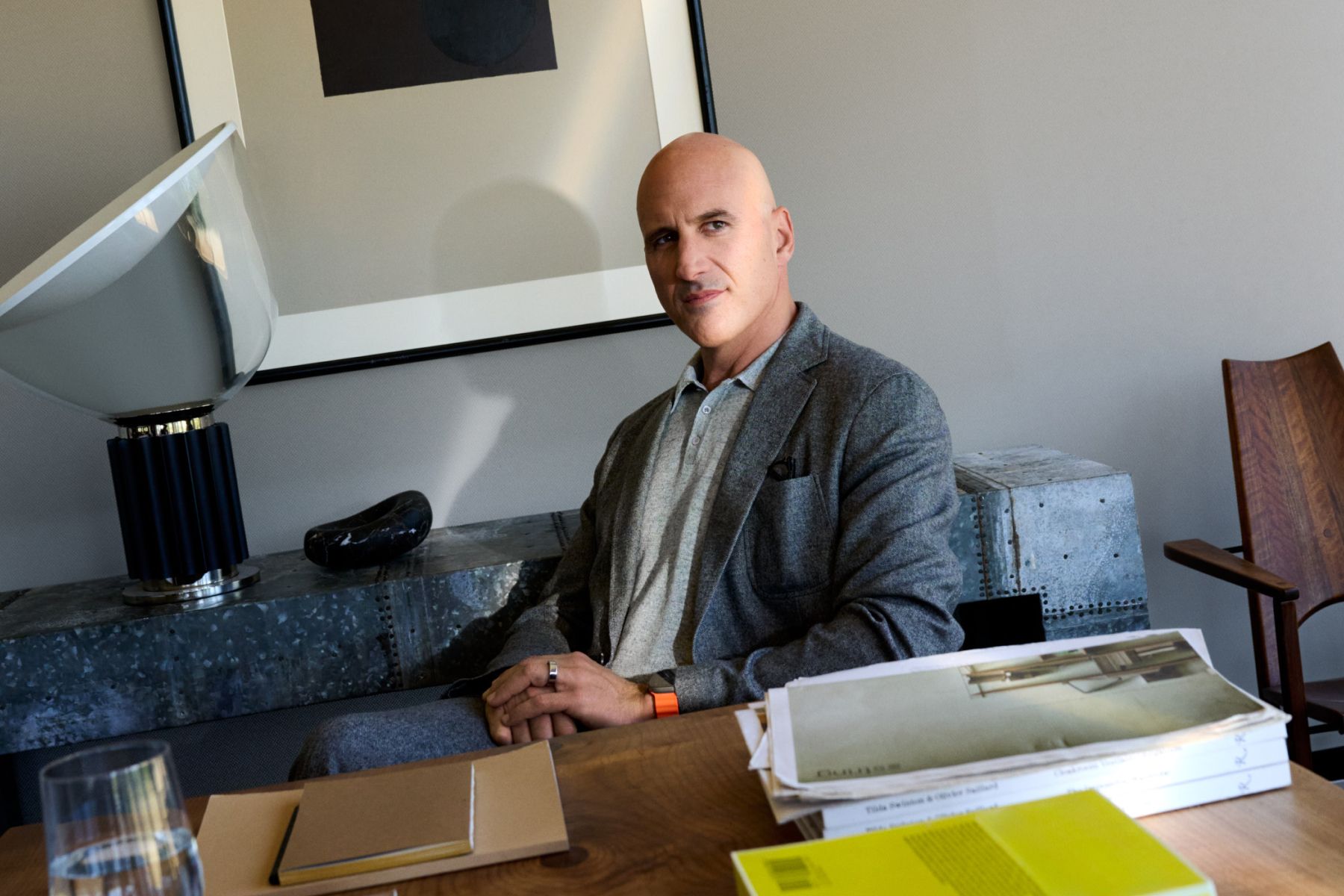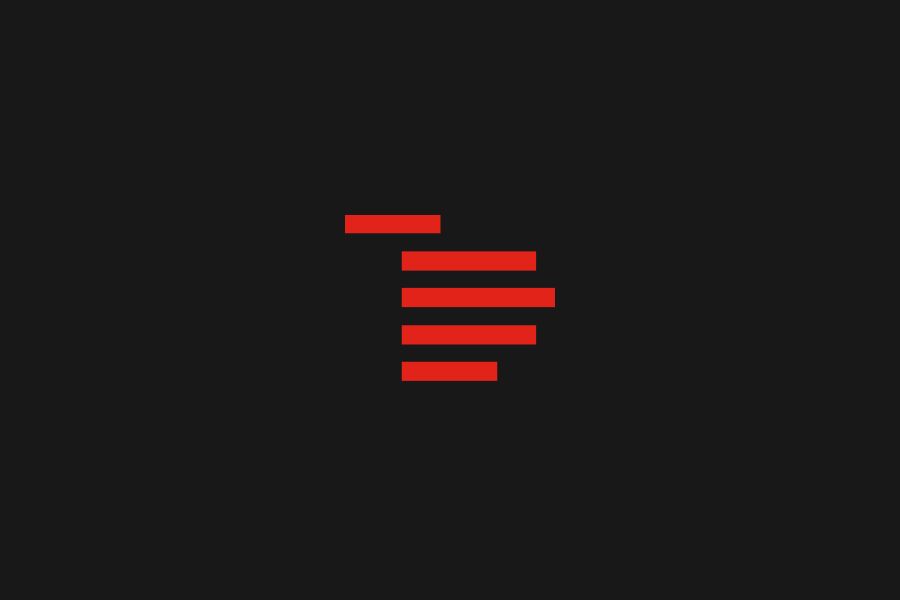Acting Boldly to Support Creators: Patreon’s Carlos Cabrera on Leading During COVID-19

Patreon has become a critical source of support for the creative community since it launched in 2013, but in the era of COVID-19, Patreon has become an even more essential resource for artists who are dealing with cancelled tours and an advertising slump. Patreon’s VP of Finance Carlos Cabrera explains how the site has handled an explosion of new users while dealing with its own lockdown challenges.
About this series: As we navigate the evolving landscape of the world today, it's been powerful to see many organizations taking on new initiatives to engage with their employees, customers, and communities.
We spoke with leaders at our portfolio companies about the meaningful actions they’ve taken to continue moving forward through the COVID-19 pandemic. We hope the insights, advice, and best practices they’ve shared might be helpful to others going through similar challenges.
What has been the impact of COVID-19 on Patreon’s business?
Carlos: A lot of companies are suffering, obviously, but Patreon has been quite fortunate. A lot of artists in the world are struggling because their tours have been canceled and online ad revenues have gone down too, but as a result a lot of people are turning to online forms of digital monetization, and that's what Patreon offers. We’ve seen a very large influx of creators over the past two months, and more than 100,000 artists have launched on Patreon in the past two months alone. As a team we’ve really had to rally so that we could support these new folks. We’ve added tips to help guide new people through the experience, we're also running live streams and product tours and we've published a lot of blog posts to help educate people about best practices.
Have you seen any changes in the audience coming to Patreon since the pandemic started?
Carlos: Our core audience are YouTubers, musicians, podcasters, and other creative folks who already have an online business. Patreon works really great for them, but there are also some new creators launching on Patreon too. We’re seeing fitness instructors and yoga teachers who can’t teach classes in person turning to Patreon to monetize their online classes. We've had a lot more bands launch than usual, and they're bigger bands than before. That’s because if you can't tour, and you're having to play shows online, Patreon gives you a way to monetize it.
I was worried about the impact of the pandemic on Patreon in terms of fans. Tens of millions of people are unemployed right now and the economy sucks. I expected folks to delete their pledges or maybe just be less likely to subscribe. In fact, the opposite has happened: net acquisition and retention have both significantly improved as a result of the pandemic. Some folks are deleting their pledges because of economic difficulty, but that has been offset by Patrons who are stepping up to support artists and creators during this time. If a band you love has had to cancel their show, you can see them online instead. A lot of fans are doing that, and it means the net impact has been a lot more fan growth than we've experienced before.
Do you think there’s a psychological angle here as well? That we’ve needed music and the arts even more during lockdown?
Carlos: Oh yes! Obviously a lot of people are stuck at home and looking for great content online. But Patreon is also about having a human connection with an artist you care about. It's helpful for folks at a time like this and people are using Patreon to get that sense of connection and community as well.
How has Patreon helped artists to connect with fans during lockdown?
Carlos: Patreon is a solution for artists who are looking for a connection with their fans. From the beginning, Patreon has been about helping artists make more money — we charge less than half what most other platforms charge. We are a support mechanism to help creators sustain their businesses through these times.
We've been live streaming interviews with artists and creators, asking them what they're doing to cope with changing times. It's helpful to hear how other YouTubers, bands, and podcasters are finding a way to create their content. Things have changed a lot. I just watched someone with ADHD on a YouTube channel I really like, and she was describing the process of trying to get the video shots and record her videos without the resources that she would normally have.
We've also done some fundraisers, including a stream-a-thon and a What the Fund fundraiser, where a whole bunch of people contributed money to help support artists. We're always trying to explore new ideas, including teaming up with some major restaurants to launch on the platform, and building new landing pages for small businesses and restaurants to help them through this time.
Can you talk about some of the most interesting projects artists have been working on?
Carlos: Ben Folds has been doing a series of live streams from Australia that he calls the Lockdown 2020. He’s playing music and showing fans what life is like for him at this time, and it's a really cool way of engaging with people. Jacob Collier has been doing a lot of really cool live stream experiences and songwriting too.
There are also artists doing exclusive hangouts through community forums like Discord, offering album listening sessions. It's so fun to listen to an album with an artist you really like and to hear how they think about the baseline, the jam track, and how much reverb is on the background vocals.
How has COVID-19 changed Patreon’s working culture?
Carlos: Our work culture was already somewhat remote. Patreon has folks in San Francisco, but we also have offices in Omaha Nebraska, New York City, Dublin in Ireland, Porto in Portugal, and a new office in Berlin. We’ve had to be comfortable with interacting across time zones and using video conferencing. The pandemic has taken it to a whole new level but in some ways, it is actually better. It can be a little weird if you're in a meeting with five people in the same room together and only one or two people are in some other location. But if everyone is on a video call, it equalizes the whole thing.
What has Patreon been doing to make sure that employees still feel close to each other during this time?
Carlos: We’ve been doing happy hours and setting up hang times, plus our all-hands meetings are now on Zoom, and we have a couple hundred people on the call. The chat feature is cool — it makes it easier for folks to ask questions on the fly because they can just type a question in the chat bar anytime instead of raising their hand. It can be daunting for some people to speak in front of the entire company.
What will work be like at Patreon after the pandemic? What’s the new normal?
Carlos: I’m curious to see what life is like at Patreon six months from now, because I'm not sure if we want to go back to normal office work. Maybe a significant part of our team can just stay remote. There are some folks who can't wait to get back into the office, and some who enjoy not having to commute and are more productive working remotely. We're actively considering changing the offices and our company facilities plan to have smaller offices.
What advice would you give other companies on how to handle the lockdown?
Carlos: It has been helpful to our team to reinforce the messaging around safety. Some folks are pretty scared about the pandemic and what's happening in the world, for good reason, and every individual is in a different position. Maybe someone in their family has COVID-19, or the worst has happened.
I don’t think companies can show too much compassion, so for leadership that’s really important right now.
Employees have also appreciated some extra budget to invest in their home workstation. Sitting on an uncomfortable chair for eight hours a day for two months is not going to help someone work; it's worth it for the company to help get them a comfortable chair, a nice monitor or a laptop stand.
Do you have any advice or best practice for managing finances right now?
Carlos: Financial planning is really interesting and complex right now. We’ve been thinking about fundraising and how that will be tough over the next year and a half. There are a lot of investors who have less money than they did before, and the pandemic has created a risk-averse environment where there will be greater scrutiny on cashflow and profitability. It's probably wise for companies to plan more towards profitability and manage their cash more carefully because it might be harder to raise money over the next 12 months.
With so much change in the market, there's an opportunity for some companies who are willing to act boldly. One of our investors said that when things like this happen, the market share often shifts dramatically between different businesses. In past recessions and downturns, the bold, aggressive companies that moved quickly were ones that came out of it stronger. So if you're a company that has a lot of cash right now, or the ability to raise it if you need it, then this might be a good time to acquire other businesses. Patreon Is actively doing that right now because if there are companies struggling with cashflow, this could be a good time for us to acquire one on favorable terms.
The other area where this comes into play is marketing.
Advertising has never been cheaper, and Patreon has decided to really step on the gas with our paid marketing. There are a lot of artists who really need us, and a lot more artists who don't even know that we exist. So we're spending more on marketing than we had budgeted for 2020.
Are there any other companies doing really well at giving back to the community right now?
Carlos: There are many companies having to go through layoffs that are doing a good job of being compassionate with their teammates. I admire companies that are willing to offer generous severance agreements, because it's going to be tough for anyone to find a new job in this environment. Carta has a letter to their team about layoffs, written very well by the CEO. I admire the way they handled that.
It's great to see so many distribution platforms stepping up to raise money that will support artists through this tough time. Yet some of these platforms are the ones that have been exploiting creators for years and charging very high take rates — taking a huge share of the revenues that ought to be going to artists in the first place. I'm proud that Patreon's pricing is less than half of what most platforms charge. We’re trying to fix the system so that artists get a fair deal for creating the work they deliver to the world.
Published — June 25, 2020
-

-

